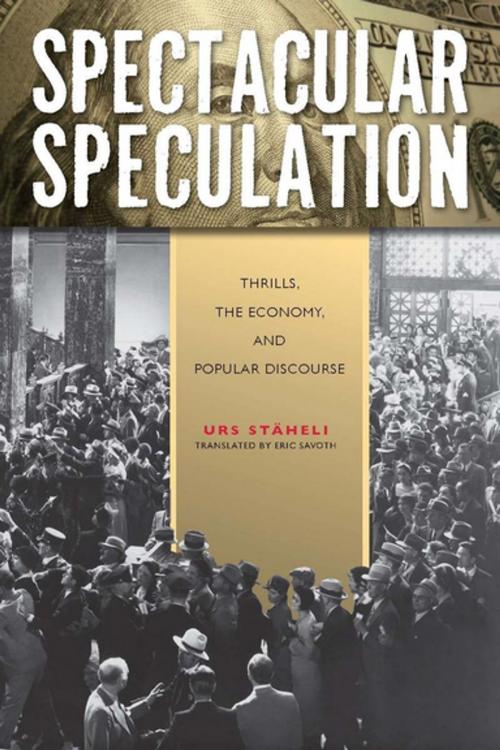Spectacular Speculation
Thrills, the Economy, and Popular Discourse
Business & Finance, Economics, Economic History, Nonfiction, Social & Cultural Studies, Social Science, Sociology| Author: | Urs Stäheli | ISBN: | 9780804788250 |
| Publisher: | Stanford University Press | Publication: | February 20, 2013 |
| Imprint: | Stanford University Press | Language: | English |
| Author: | Urs Stäheli |
| ISBN: | 9780804788250 |
| Publisher: | Stanford University Press |
| Publication: | February 20, 2013 |
| Imprint: | Stanford University Press |
| Language: | English |
Spectacular Speculation is a history and sociological analysis of the semantics of speculation from 1870 to 1930, when speculation began to assume enormous importance in popular culture. Informed by the work of Luhmann, Foucault, Simmel and Deleuze, it looks at how speculation was translated into popular knowledge and charts the discursive struggles of making speculation a legitimate economic practice. Noting that the vocabulary available to discuss the concept was not properly economic, the book reveals the underside of putting it into words. Speculation's success depended upon non-economic language and morally questionable thrills: a proximity to the wasteful practice of gambling or other "degenerate" behaviors, the experience of financial markets as seductive, or out of control. American discourses of speculation take center stage, and the book covers an unusual range of material, including stock exchange guidebooks, ticker tape, moral treatises, plays, advertisements, and newspapers.
Spectacular Speculation is a history and sociological analysis of the semantics of speculation from 1870 to 1930, when speculation began to assume enormous importance in popular culture. Informed by the work of Luhmann, Foucault, Simmel and Deleuze, it looks at how speculation was translated into popular knowledge and charts the discursive struggles of making speculation a legitimate economic practice. Noting that the vocabulary available to discuss the concept was not properly economic, the book reveals the underside of putting it into words. Speculation's success depended upon non-economic language and morally questionable thrills: a proximity to the wasteful practice of gambling or other "degenerate" behaviors, the experience of financial markets as seductive, or out of control. American discourses of speculation take center stage, and the book covers an unusual range of material, including stock exchange guidebooks, ticker tape, moral treatises, plays, advertisements, and newspapers.















